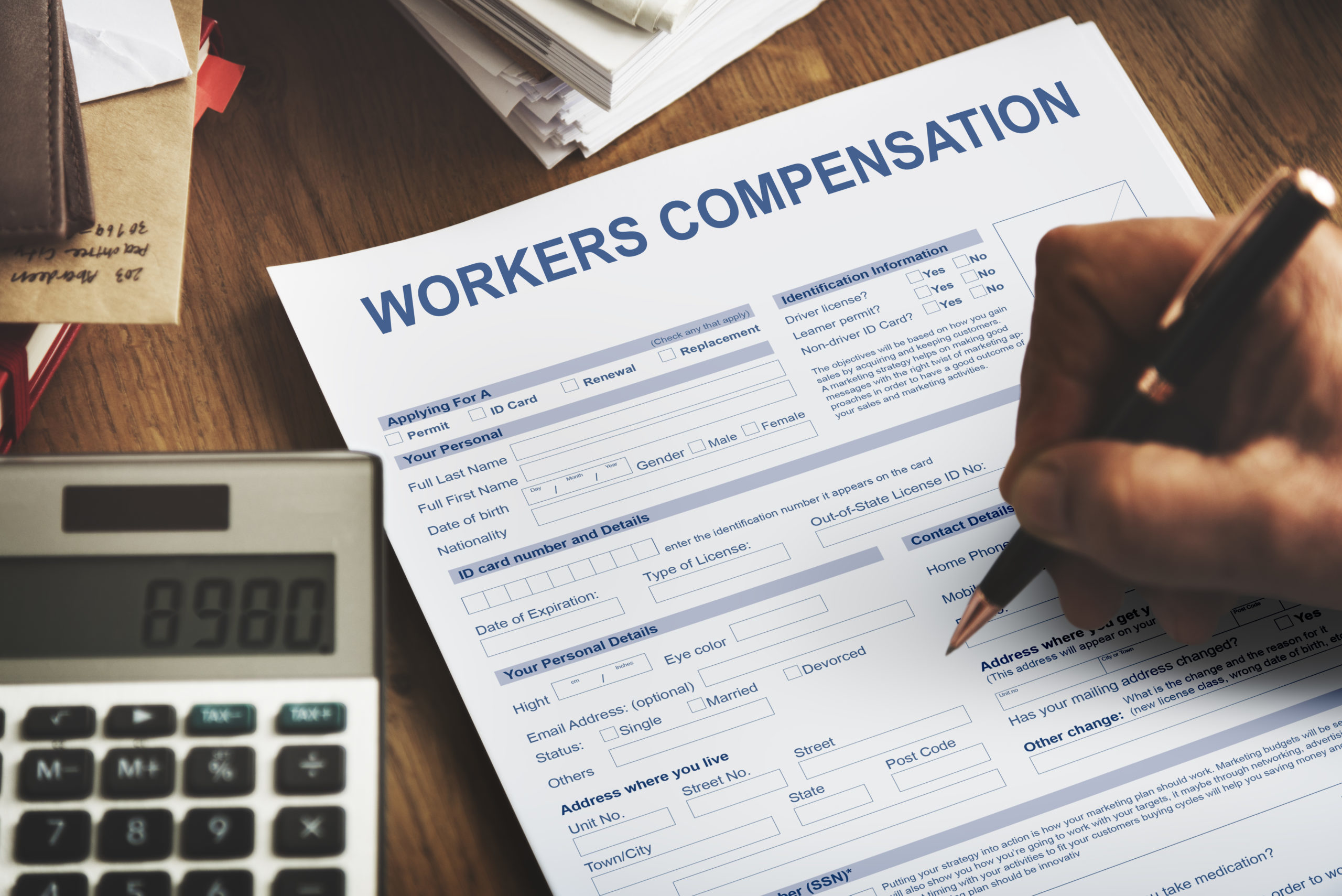
Every paycheck represents your time, effort, and commitment to your job. When this commitment isn’t respected, whether through unpaid overtime or being pressured to work off-the-clock, it impacts your bank account and plans for the future.
However, if you’re not getting paid for your work, it’s not just frustrating — it’s against the federal and state laws. The good news is that many workers have successfully claimed their unpaid wages, and you can do it too.
So, rather than accepting this situation or quitting the job silently, you can take legal steps and get your hard-earned money back. This article explains how to sue for lost wages stress-free.
- The Definition of Unpaid Wages
- Most Common Types of Unpaid Wage Disputes
- Can You Sue Your Company for Underpaying or Not Paying You?
- How to Report and Recover Unpaid Wages
- Factors That Are Considered When Your Wage Claim Is Reviewed
- Unpaid Wages Legal Process
- Get a Free Case Evaluation
- Can Undocumented Immigrants Sue for Unpaid Wages?
- How Our Worker Compensation Lawyer Can Help?
- Contact Our Employment Lawyers today!
- 30-Day, Risk-Free Guarantee
The Definition of Unpaid Wages
Some workers may be unsure whether their situation qualifies for legal action, so let’s first break down the basics and define what unpaid wages are. These are the money your employer legally owes you for the work you’ve already done but haven’t been paid for yet. This includes your regular hourly wage, any unpaid overtime hours, or your last paycheck.
Wage protection is a cornerstone of labor rights in the U.S. There’s a whole division for making sure workers get paid correctly. Wages are protected by strong federal law — the U.S. Department of Labor’s Wage and Hour Division controls employers nationwide. Plus, each state adds its own rules for extra protection.
Most Common Types of Unpaid Wage Disputes
Employees can lose money in various ways when companies don’t follow wage laws. Here are the main ones:
- Unpaid hours: This includes the time you spend getting ready for your shift and cleaning up after your shift is over. For example, if you work in a restaurant and spend 30 minutes cleaning up after closing, you must get paid for that time.
- Off-the-clock work: This situation happens when the boss expects you to work without tracking your hours. You might have to reply to work emails, join meetings that are outside your usual hours, or finish paperwork once your working day is over.
- Violation of overtime wages: Employers must pay you at least 1.5 times your normal hourly wage for any hours you work over 40 a week. But some employers might try to avoid this by splitting hours between two weeks or just saying you’re not eligible for it at all. So, if you work 45 hours in one week, you should definitely get paid overtime compensation for these extra 5 hours.
- Minimum wage violation: Every worker must receive at least the minimum wage for all hours worked. Some employers break this rule by paying below minimum wage (especially when it comes to undocumented immigrants who don’t want to reveal their immigration status). Even if you agreed to work for less, it’s still illegal, and you’re entitled to minimum wages.
Can You Sue Your Company for Underpaying or Not Paying You?
There are cases when you can’t bring a private lawsuit. Particularly if the Department of Labor has already helped you get your back pay or they’re currently suing your employer.
Timing matters, too — you have two years to file your claim for a non-willful violation or three years for a willful violation (if your employer knew they were breaking the federal wage laws but did it anyway).
How to Report and Recover Unpaid Wages
Whatever wage type you’re facing, there’s a clear process to recover what you’re owed:
-
Check your eligibility for back pay
This means you need to know if you’re categorized as an employee or an independent contractor and if you’re entitled to overtime.
-
Contact your employer first
Lawsuits should be your last resort. Start by discussing your unpaid wages with your boss. If they keep ignoring your concerns and rights, that’s the time to consider engaging relevant authorities.
-
Gather evidence of unpaid wages
Strong case — successful case. And any detail can make it only stronger. Collect the available documentation, records, and other evidence you think will be useful. The information you need is listed further.
-
File a wage complaint
If direct communication with your employer didn’t help, file a formal wage complaint with the Department of Labor’s Wage and Hour Division. They’ll investigate your case, and if they decide your employer broke the law, they’ll order them to pay you what you’re owed. It doesn’t cost anything and is pretty effective for simple cases.
-
Consult with an attorney
If evidence gathering and paperwork are too challenging for you, you can enlist the support of a reputable law firm.
You might be wondering at this point — whether it’s worth it to hire a lawyer and go to court when the Department of Labor can handle your case. It’s a fair question.
The Department of Labor can help you get back your wages owed, but when you hire workers compensation lawyers, they will fight for as high a recovery as possible. This way, you can claim your unpaid wages and punitive damages, and your employer will also cover your court costs and attorney fees.
Also, wage theft may point to bigger issues like discrimination based on race, gender, or age. These complex situations involve multiple laws, so you’ll need specialists, like Michael Kelly Injury Lawyers, who understand all of them.
The Information You Need to Prove Your Rights
Whether you work with the Department of Labor or hire an employment attorney, even minor details can impact your case. Here’s what you should document daily:
- Work hours, including start and end times
- Any off-the-clock work
- Job duties you did outside regular hours
- Dates of pay period violation or incorrect amounts
The best evidence is frequently in written form, as it’s harder to dispute. Whenever you talk about work hours or pay concerns with your employer, try to communicate via email or text.
Formal records are also harder for employers to challenge:
Factors That Are Considered When Your Wage Claim Is Reviewed
When you file a claim for unpaid wages, people reviewing your case need to check certain things. These help them figure out if your employer broke the law and how much money they owe you. Here are some of the factors that can be reviewed:
- Work classification: How you’re paid — hourly or salary — can impact your wage rights. Each type comes with rules about overtime and minimum wage.
- Federal minimum wage vs. state minimum wage: If the federal minimum wage is $7.25, but your state has set it at $15, then you must be paid at least $15 per hour. Getting paid less than your state’s minimum wage is against the law, even if it’s higher than the federal rate.
- Your work schedule: Do you work regular hours or unusual shifts? If you’re on a non-traditional schedule (like nights or weekends), different pay rules could apply.
- Missing pay timing: When did you notice unpaid wages? Sometimes, what looks like missing pay might just be delayed to your next paycheck.
- Other workers’ cases: Are your coworkers also missing wages? If many workers have the same problem, you might be able to join a class-action lawsuit together. This can make your case stronger and easier to back up.
Unpaid Wages Legal Process
And if you’re worried about what might happen when you decide to sue your employer, like your boss trying to fire you, cut your hours, delay your promotion, or just make your job harder, all of these actions are also illegal.
The law is clear: they can’t retaliate against you for claiming your wages. If they do, they’re just adding fuel to your legal fire and giving you more reasons to take them to court.
Getting your unpaid wages back usually takes a few steps. Not every situation goes through all of them (some settle early), but here’s what to expect.
Investigation
Before any legal action starts, your employment law attorney should set the stage with a solid case. They review all your documents, like pay stubs, time cards, and any communications about unpaid wages. This lets them determine whether your case qualifies for legal action. Plus, investigation helps calculate exactly how much your employer owes you by comparing your actual pay to what you should have received under the law.
During this stage, your lawyer might also talk to your coworkers who faced similar issues or witnessed wage theft.
Demand Letter
Now it’s time to let your employer know you’re serious about getting your money back. Your lawyer creates a demand letter pointing to wage theft and what it means legally. This letter shows the proof, breaks down the federal laws that were broken, and outlines exactly how much money you’re missing.
Your employer may decide to settle things right here because this letter makes it obvious that fighting the case could end up costing them way more than just recovering unpaid wages.
Lawsuit
If your employer ignores the demand letter and still refuses to pay, your lawyer files a formal wage theft complaint with the court. This document explains your case in legal terms and officially starts the lawsuit. Your employer gets a formal notice and has an established deadline to respond. But keep in mind that they may deny the unpaid wage claims or try to justify their actions. So, the court then sets up initial hearings and creates a schedule for the case.
Discovery and Settlement
This stage helps discover the complete picture of your wage issues from both sides. Your company executives must also answer questions about their pay practices. This often leads to settlement because employers realize the evidence against them is strong. Plus, they simply can’t hide documents and records relevant to wage theft. In this case, your lawyer negotiates to score you the best compensation possible, so you don’t have to deal with the unpredictability of a trial.
Trial and Compensation
You may not reach this stage since some employers prefer to reach an agreement earlier to avoid the uncertainty and costs that come with going to a wage theft trial. However, if your case ends up in court, your lawyers will assist you in this process, too, and the court will make the final decision about your compensation.

Get a Free Case Evaluation
Can Undocumented Immigrants Sue for Unpaid Wages?
Every worker deserves fair pay for their job, no matter their immigration status. Thus, labor laws are here to protect everyone working in the U.S., whether they’re documented or not.
However, some employers may still hire immigrants to pay less than the proper minimum wage. Undocumented workers may hesitate to claim their unpaid wages because they don’t want to expose their immigration status. But, in fact, using immigration status as a threat to avoid paying wages is itself illegal.
How Our Worker Compensation Lawyer Can Help?
When you’re fighting for unpaid wages, you need an experienced employment lawyer who will stand their ground. Michael Kelly Injury Lawyers have been helping workers get back their hard-earned wages, and our negotiated settlements prove we know how to win. So, we’re here to help you, too.
Right from the start, Michael Kelly Injury Lawyers will do their best to negotiate the maximum compensation for your wage theft case with minimum stress. We’ll review your case, find every cent you’re owed, and handle all talks with your employer.
What seems like just a simple case of missing overtime pay can actually have several wage violations behind it. More violations mean more compensation. It’s our job to discover all of them.
Contact Our Employment Lawyers today!
Your boss has their lawyers, so it’s your turn to get yours. A lot of our clients found out they were owed way more than they originally thought.
Our team is dedicated to standing up for workers’ rights, but if you’re not satisfied with our representation in the first 30 days, you won’t be charged.
So, what’s your wage theft case really worth? Contact our lawyers for a free consultation, and let’s find out together!






